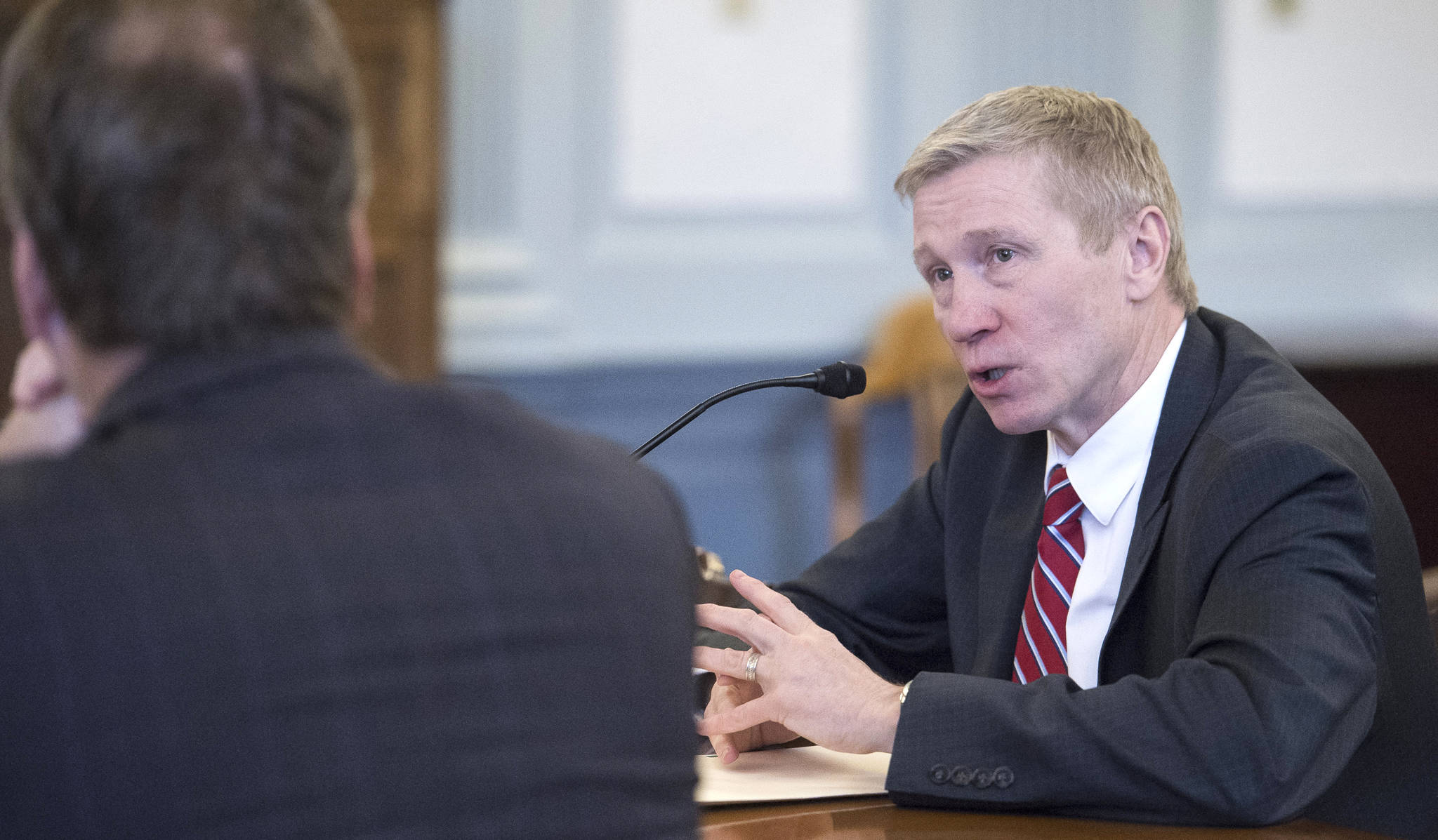It was cruel irony.
Days before the Alaska Legislature convened in Juneau to discuss ways to keep inmates from returning to prison for new crimes, one of the capital city’s leading post-prison agencies closed its doors for lack of funding.
For three years, Second Chance, run by the Central Council of the Tlingit and Haida Indian Tribes of Alaska, helped former inmates find work after they left the fenced yard of Lemon Creek Correctional Center.
No more. The program ended Oct. 3 after its U.S. Department of Justice grant expired.
“Juneau, our capital city, does not have a re-entry program, and we are the hub for Southeast Alaska,” said Talia Eames, coordinator of the Second Chance program, on Monday night. “We let a lot of people down that day.”
“Do I think it’s a loss to the community? Absolutely,” said Don Habeger, coordinator of the Juneau Re-Entry Coalition.
That coalition is a network of organizations whose missions are to help (in one way or another) former prisoners re-enter life outside the prison walls. For those organizations, Second Chance was a hub — the only such hub in Southeast Alaska.
“It started as a vocational program and it turned into something much more,” said Kara Nelson, director of Haven House, a destination for women leaving prison.
In Anchorage, the Partners for Progress Re-Entry Center is a physical place where the newly released can go to find services. In Juneau, the offices of Second Chance — located in the Andrew Hope Building — served that purpose to an extent.
“When they’re there, they don’t need to explain that they’ve been to prison and have felonies,” Nelson said. They could find work and find support in a safe space.
Dean Williams, Alaska’s commissioner of corrections, said newly released prisoners need two main things when they leave the state’s prison system: a place to live and a job.
Without a program like Second Chance or Partners for Progress, they probably won’t have that.
“Unless you’re in one of those locations, you are now couch-surfing. That’s a problem,” Williams said.
Without housing or a stable job, a newly released prisoner might lapse into addiction or homelessness, and from there back into crime.
Williams said his goal is to break that cycle by working with prisoners before their release.
“If they’re working before they get out, then guess what, they can afford an apartment,” he said.
In the Alaska State Capitol, lawmakers are considering legislative changes to the state’s criminal justice system, but for Second Chance, the problem wasn’t legislation, it was money.
“We need the money. We are desperately needing treatment options. We have 28 beds in Juneau, the capital city, and without the reinvestment funds, it’s going to get worse,” Eames said.
Eames was speaking not just to the state of Second Chance, but about alternatives to prison, such as drug treatment. While the Legislature has allocated $8.5 million over the past two fiscal years for various alternatives to prison, it has simultaneously cut funding for the state’s criminal justice agencies.
Since 2015, funding for all of the state’s criminal justice agencies — The Department of Corrections, Department of Public Safety, Judiciary and the Department of Law — has declined significantly. The unrestricted general fund budget of the Department of Corrections alone has been cut from $298.9 million (in FY15) to $253.7 million (in FY18).
Nelson said by text message that all of Juneau’s programs devoted to “returning citizens” require the devotion of volunteers as well as funding. “One won’t work well without the other,” she wrote. “We are all struggling to stay afloat, but (we) have a passion and will fight to the end.”
• Contact reporter James Brooks at james.k.brooks@juneauempire.com or call 523-2258.

